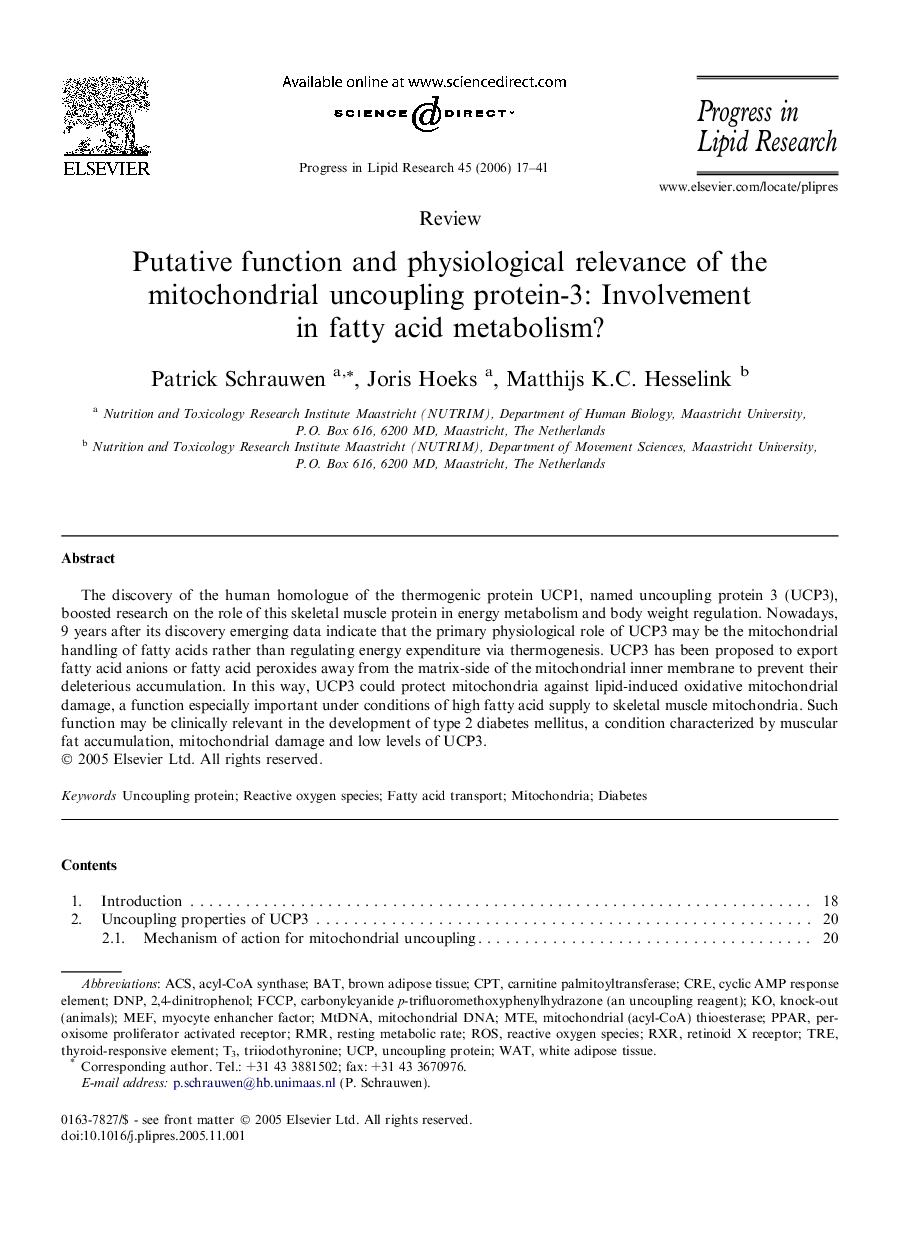| Article ID | Journal | Published Year | Pages | File Type |
|---|---|---|---|---|
| 2019366 | Progress in Lipid Research | 2006 | 25 Pages |
Abstract
The discovery of the human homologue of the thermogenic protein UCP1, named uncoupling protein 3 (UCP3), boosted research on the role of this skeletal muscle protein in energy metabolism and body weight regulation. Nowadays, 9 years after its discovery emerging data indicate that the primary physiological role of UCP3 may be the mitochondrial handling of fatty acids rather than regulating energy expenditure via thermogenesis. UCP3 has been proposed to export fatty acid anions or fatty acid peroxides away from the matrix-side of the mitochondrial inner membrane to prevent their deleterious accumulation. In this way, UCP3 could protect mitochondria against lipid-induced oxidative mitochondrial damage, a function especially important under conditions of high fatty acid supply to skeletal muscle mitochondria. Such function may be clinically relevant in the development of type 2 diabetes mellitus, a condition characterized by muscular fat accumulation, mitochondrial damage and low levels of UCP3.
Keywords
Related Topics
Life Sciences
Agricultural and Biological Sciences
Food Science
Authors
Patrick Schrauwen, Joris Hoeks, Matthijs K.C. Hesselink,
